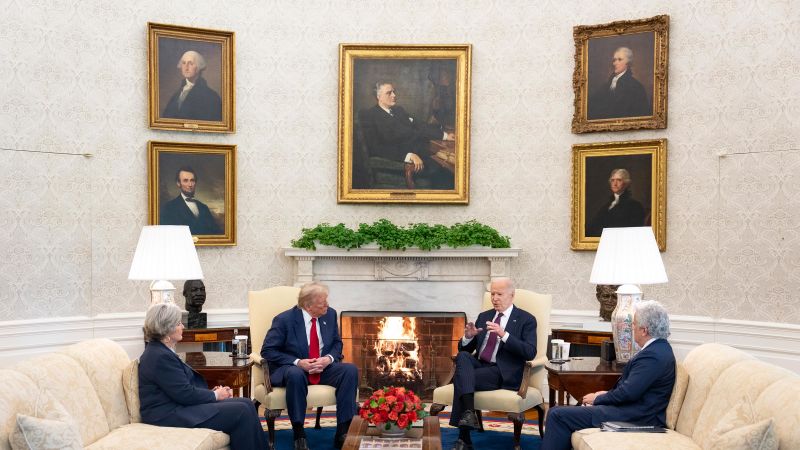On Sunday morning, the Sudanese authorities closed the bridges linking Khartoum with its suburbs and deployed several security forces on vehicles equipped with weapons, ahead of the “millions of martyrs” demonstrations to demand civilian rule and condemn the “bloody violence” against protesters.
Eyewitnesses also confirmed the interruption of mobile internet service in the Sudanese capital on Sunday.
The NetBlocks group, which tracks internet network failures, stated on its Twitter account that “the disruption of mobile internet in Sudan has been confirmed since about 10:00 am local time before anti-coup protests in Khartoum.”
continuous resistance
The authorities took the initiative to close the bridges linking the center of Khartoum with the neighborhoods of Omdurman and Bahri, and army and police forces were deployed in all the main streets, some of them on vehicles with machine guns.
The Sudanese Professionals Association – the professional entity that played a pivotal role in the uprising that toppled Omar al-Bashir in April 2019 – called in a statement on Saturday to make 2022 a “year of continuous resistance.”
He said that he calls on “the masses of the Sudanese people and the masses of Sudanese professionals and wage workers in all cities and villages of Sudan” to “go out and actively participate in the million-dollar processions on January 2, 2022.”
The army commander, Abdel Fattah Al-Burhan, had dismissed and arrested Prime Minister Abdullah Hamdok and members of his government on October 25, but he returned him to his position without his government following international and local pressures on November 21.
The two men later signed an agreement to restore the democratic transition to its tracks and reassure the international community, which reduced its aid after the “coup.” The agreement was not satisfactory to all parties in Sudan, which led to protests in the streets.
dead
Last Thursday, the capital witnessed an escalation in the pace of protests on the one hand and the violence of the security forces to respond on the other hand, which resulted in the deaths of five demonstrators, according to the Central Committee of Sudanese Doctors against the coup.
The committee confirmed in a statement on Saturday that the number of victims of the protests “since the coup of October 25, 2021” has risen to 53, including 11 martyrs who were victims of the political agreement.
The committee accused the security forces of blocking ambulances and forcibly removing one wounded person from one of them, while several videos published Friday show men in military uniforms beating protesters with sticks.
The demonstrators believe that political initiatives are no longer effective, and that the army should “return to the barracks”, as it promised in 2019 when it toppled al-Bashir.
The American position
On Sunday, the US State Department called on Sudanese security forces to “immediately stop using lethal force against protesters and to move to hold those responsible for human rights violations to account.”
In a statement posted on the ministry’s website, Foreign Minister Anthony Blinken congratulated the Sudanese people on the 66th anniversary of their country’s independence.
He said the United States had hoped that 2021 would provide an opportunity for partnership with a democratic Sudan, but the October military takeover and violence against peaceful protesters have cast doubt on that future.
“We do not want to go back to the past and we are ready to respond to those who want to obstruct the aspirations of the Sudanese people for a democratic, civilian-led government, and who stand in the way of accountability, justice and peace,” he added.
The statement called on the Sudanese security forces to “immediately stop using lethal force against protesters and to move to hold those responsible for human rights violations to account.”
He also called on Sudan’s leaders to make rapid progress in forming a credible government, establishing a legislative council, forming judicial and electoral bodies, and transferring the leadership of the Sovereign Council.
The position of the authorities
For his part, Brigadier-General Taher Abu Haga, Al-Burhan’s advisor, told the official news agency on Friday that “the continuation of the demonstrations in their current way is nothing but a material, psychological and mental drain on the country and a waste of energies and time.”
“The demonstrations will not lead the country to a political solution,” he added.
Yesterday, an emergency meeting of the Sovereignty Council and another meeting of the National Defense Council discussed the current political crisis in the country.
A source from the “Forces of Freedom and Change – National Charter Group” confirmed that Hamdok gave the political forces until Sunday to reach an agreement to resolve the crisis.
Member of the Sovereign Council in Sudan, Salma Abdel-Jabbar, said that the council stressed, in its meeting yesterday, to address the current crisis through dialogue.
In the meantime, a member of the Sovereignty Council, Abdul-Baqi Abdul-Qadir Al-Zubair, told Al-Jazeera that he had submitted his resignation yesterday evening to the head of the Council, who has not yet decided on the matter.
A source from the Zubair family said that he refrained from attending the Sovereign Council meeting yesterday, noting that the reasons for his resignation were due to the use of violence against the demonstrators.
search solutions
In the context of solutions proposals, the Sudanese Professionals Association submitted a proposal called “The Political Charter to Complete the December Revolution”.
The proposal, which Al Jazeera obtained a copy of, stipulates the necessity of overthrowing the Military Council, and forming a civilian transitional authority for four years.
It also provides for the formation of an honorary civilian Sovereignty Council, a Council of Ministers whose members do not exceed twenty people of revolutionary competencies, and a civilian Legislative Council.
The proposal of the gathering of professionals also called for building and restructuring the regular forces and dismantling all militias, especially the Rapid Support Forces, and for the prime minister to be the commander-in-chief of the armed forces.
Since last October 25, Sudan has witnessed protests in response to exceptional measures taken by the President of the Sovereign Council, Abdel Fattah Al-Burhan, most notably the imposition of a state of emergency, the dissolution of the Sovereignty Councils and the transitional ministers, the dismissal of Prime Minister Abdullah Hamdok, and the arrest of officials and politicians.
Although Al-Burhan and Hamdok signed a political agreement, on November 21, that included the latter’s return to his position, the formation of a government of competencies, and the release of political detainees, political forces considered the agreement an “attempt to legitimize the coup,” and pledged to continue protests until “full civilian rule” is achieved. during the transition period.






